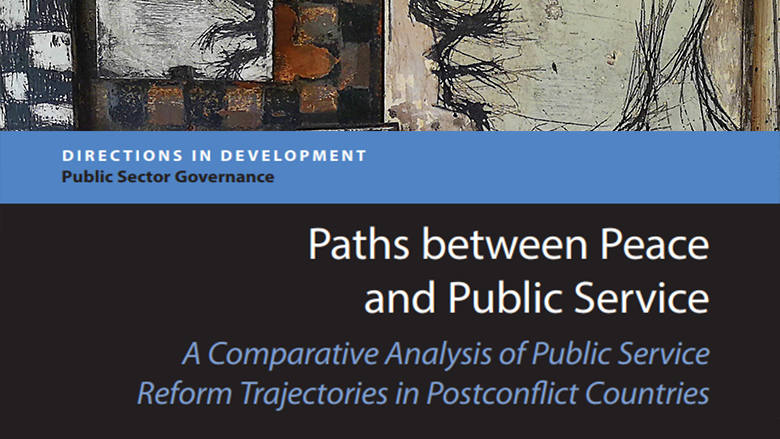Effective governance and sound institutions are foundations for growth and development in all countries, but particularly in post-conflict countries. In such countries, governments often lack the capacity, accountability, and legitimacy to credibly perform state functions, including the provision of security, resolution of new conflicts, and delivery of essential public goods and services.
Building a capable public service is therefore fundamental to post-conflict state building. But in post-conflict settings, short-term pressures often outweigh this longer-term objective.
To ensure peace and stabilize fragile political coalitions, for example, political elites are often obligated to hand out public jobs and better pay to constituents, regardless of merit. And donor-financed parallel project structures, which rely on highly paid technical assistants rather than the regular public service, often become the primary vehicle to address citizens’ immediate service delivery needs.
So, considering these short-term compromises, what is the best approach to rebuilding public services in post-conflict settings?
This is precisely the question that a new World Bank study aims to answer. Paths between Peace and Public Service compares public service reform trajectories in five countries — Afghanistan, Liberia, Sierra Leone, South Sudan, and Timor-Leste — in the aftermath of conflict. The report, which was launched today at World Bank headquarters, investigates four crucial issues: size and composition of the public service; pay reforms; public service management bodies; and parallel structures.
“The study analyzes how reform trajectories are influenced by elite bargains and highlights their path dependency, shaped by pre-conflict legacies and the specifics of the conflict period,” says Jurgen Rene Blum, one of the authors and Senior Governance Specialist at the World Bank. “The study also identifies policy lessons for the future engagement of development partners in building public services.”
Grand forces
Amongst these lessons, the study finds that three “grand forces” have shaped the five countries’ post-conflict paths: pre-conflict legacies; conflict itself; and post-conflict elite bargaining.
The study also offers some practical guidance to tackle these grand forces, including:
- First, development partners ought to “think history, not tabula rasa” — that is, accept and anticipate that legacies tend to persist — and that building institutions upon prevailing values can provide a powerful source of legitimacy.
- Second, development partners ought to negotiate pragmatically, recognizing that to domestic elites, public jobs are necessarily a political currency for buying peace.
- And third, partners ought to adopt a long-run perspective. The early post-conflict period often provides a window of “high institutional malleability” in which development partners exert considerable influence over public service reform decisions. These decisions have tended to focus on meeting immediate needs, yet they have often shaped public service trajectories over the decade to follow.
These three forces have shaped public service pathways and delimited the level of influence of political elites and development partners. Yet the report also finds that in the five case studies, development partners’ “first-best” attempts at reforming public services have tended to ignore or resist these forces.
First-best policies have typically pursued visions of a lean, efficient, and affordable public service; sought to build standard institutions such as independent public service commissions; and aimed to establish rational pay and grade structures based on job evaluations.
In hindsight, the study notes, many of these reforms did not work as planned, calling upon development partners to rethink their approach to building public services post-conflict.
“The study’s primary message is a call for pragmatism,” says Deborah Wetzel, Senior Director of the World Bank’s Governance Global practice. “Rather than continuing to invest in strategies that resist political forces and capacity limitations, donors should anticipate these pressures and pursue policies that further long-term state building under these constraints.”
Contributed by Mauricio Rios, Communications, Governance Global Practice

